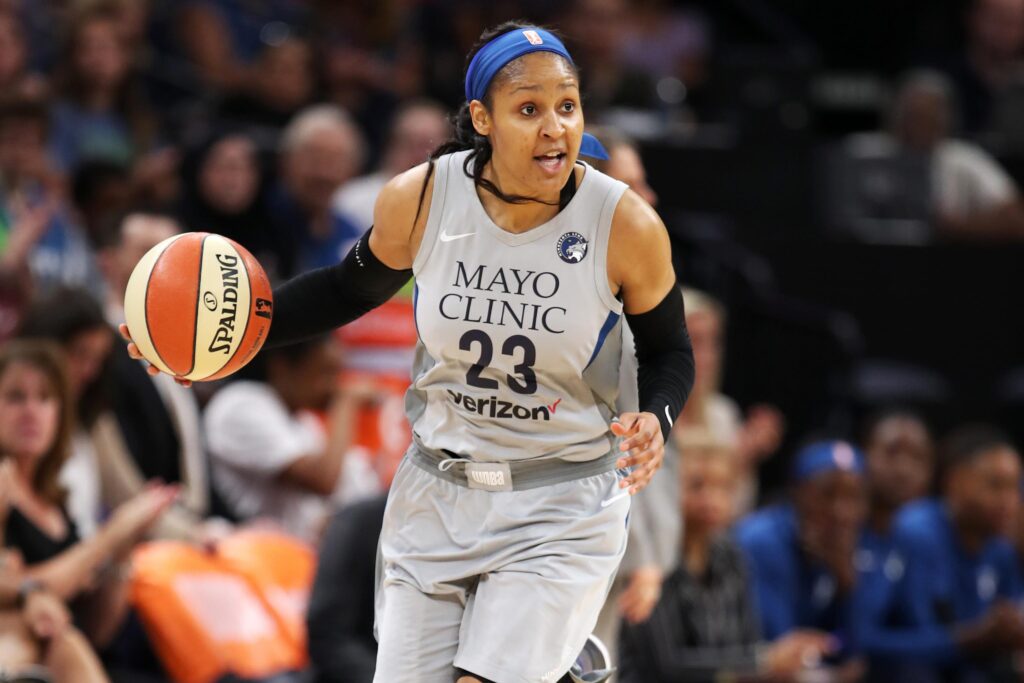Maya Moore, a WNBA player for the Minnesota Lynx, put her career on hold last year in order to contribute to criminal justice reform. Recently, she had advocated for the release of Jonathan Irons, a Black man who she believed had been wrongfully convicted for burglary and assault with a weapon more than two decades ago.
On Wednesday, Moore’s efforts to see Irons walk free from the Missouri Jefferson’s Correctional Center came to fruition after the forty-year-old was finally released.
WNBA star Maya Moore sat out the entire season last year and helped overturn the conviction of Jonathan Irons, who was serving a 50-year prison sentence.
He was finally released today.
(via @MooreMaya) pic.twitter.com/fUWEEFP1nz
— Bleacher Report (@BleacherReport) July 2, 2020
Irons spent the majority of his life serving twenty-two years of the fifty year sentence he was handed when he was just eighteen .
The victim who led to the conviction, Stanley Stotler, was a suburban St. Louis homeowner who testified that Irons assaulted him in his own home, even though Irons’ lawyers pointed out that there was no evidence that tied him to the crime. Despite the lack of evidence, Irons, who was sixteen at the time of the incident, was tried as an adult in front of an all-white jury, where he was found guilty.
Stotler was initially asked to identify the perpetrator but was unable to, so he was advised by an officer to “guess.” Stotler then pointed to two Black males and Irons was the larger of the two.
A Missouri judge, Daniel Green, vacated the 1998 conviction in March, and after listening to Irons’ plea of innocence noted that there were numerous faults with the initial ruling of the case.
Green focused on a piece of forensic evidence (a fingerprint belonging to neither the homeowner nor Irons) in the doorway of the home that was withheld from Irons’ defense team. Irons’ lawyers emphasized that having access to the print supported their claim that Irons was, in fact, not present at the scene of the crime and was wrongfully identified.
Maya Moore met Irons through a prison ministry in 2007, shortly before she started her freshman year at UCONN. Over time, the two became close but Moore refrained from publicly discussing their friendship until 2016, when she began to advocate for prison reform and changes in the legal and law enforcement. In 2019, she announced that she would sit out the season to focus on criminal justice reform; in January, she extended her leave of absence for another season to continue her social justice work.
Moved to action by the ongoing murders of unarmed Black men , Moore led the Minnesota Lynx in a protest advocating for racial justice and supporting the Black Lives Matter movement. Later, she used her spotlight to raise awareness of Irons’ case and financially supported him by hiring his defense attorney, Kent Gibson.
Through her platform, Moore has worked to expose issues in the criminal justice system. Namely, that Black and Latinx people are wrongfully convicted of crimes more often than their white counterparts, and that Black and Latinx children are disproportionately tried as adults and face adult sentences.
I’m not from the US so forgive my ignorance but how is it legal to keep a child in prison?
— arianna (@fetfruners) July 1, 2020
